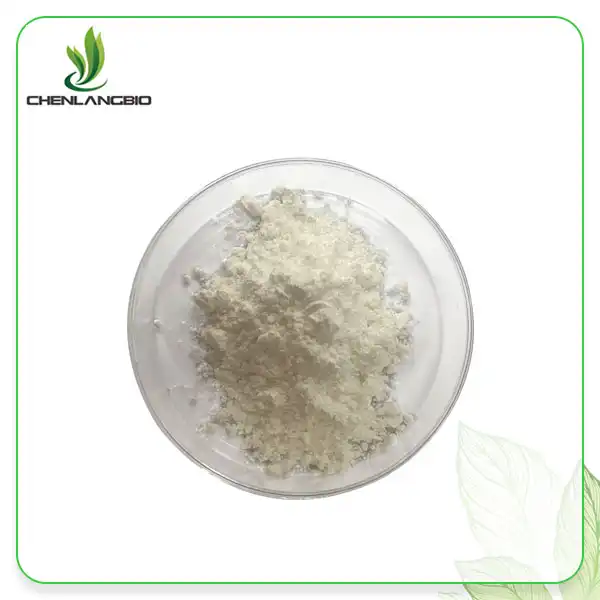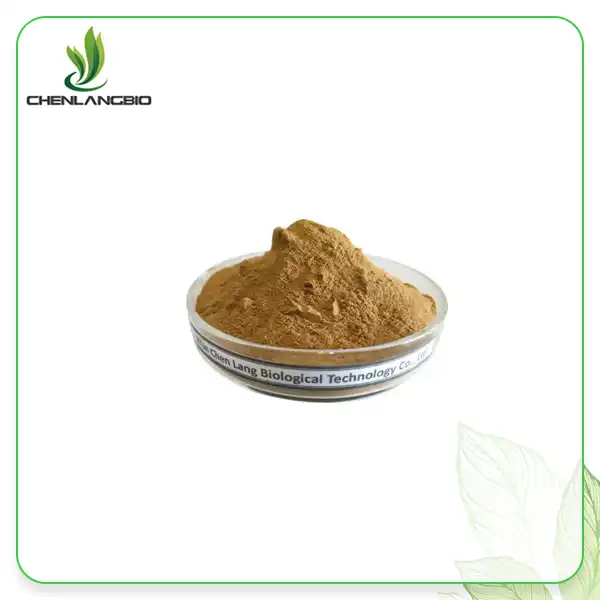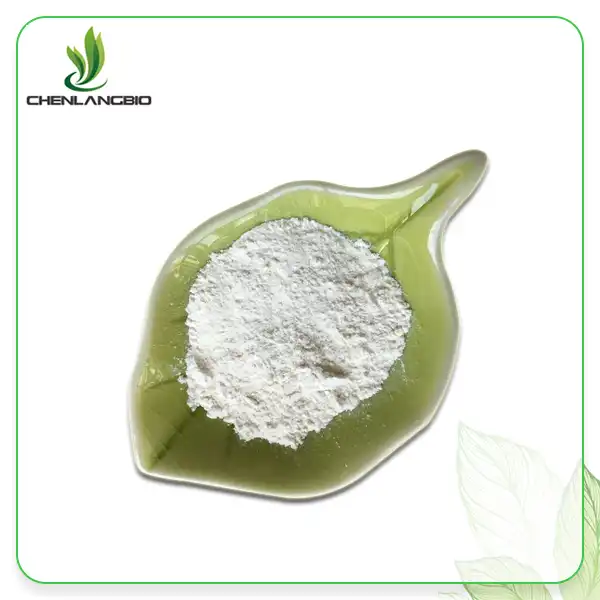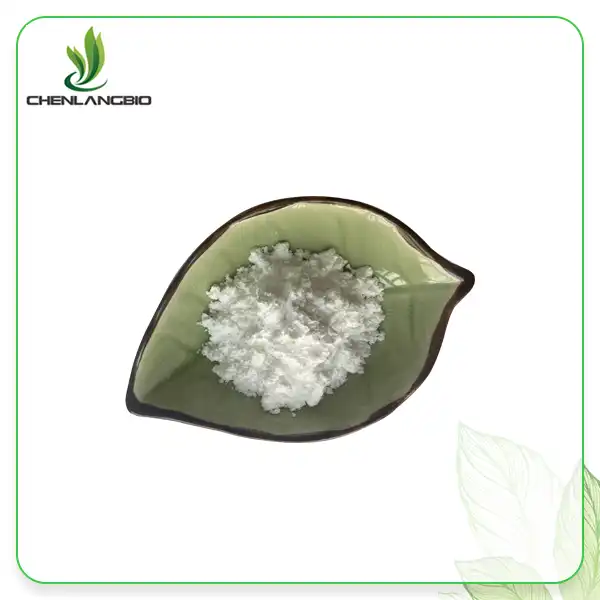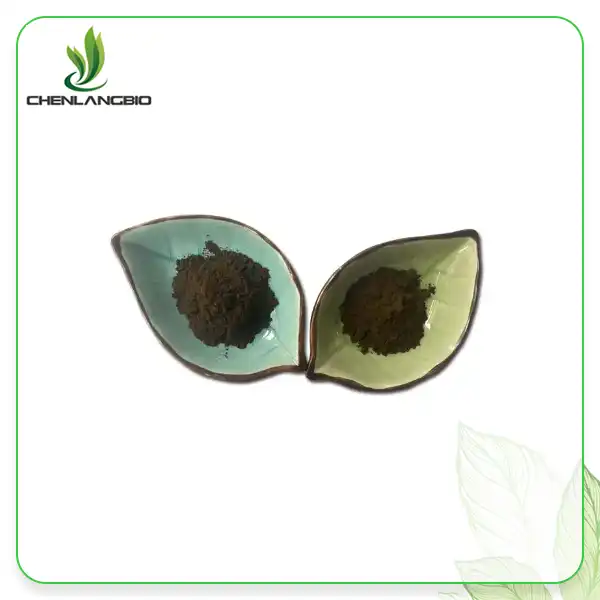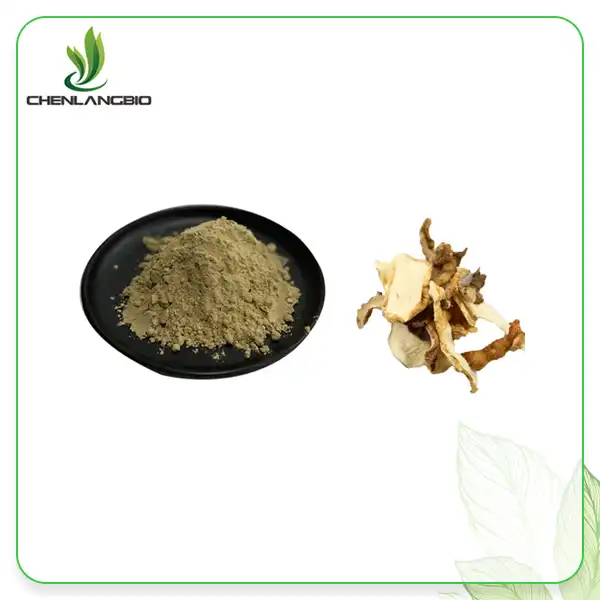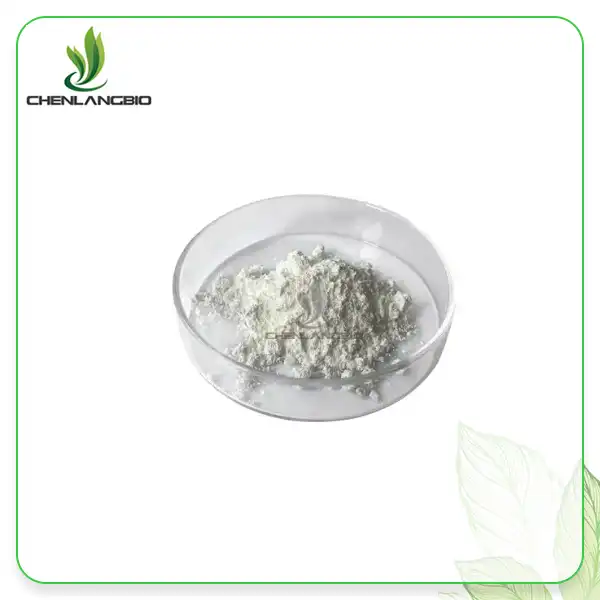Saw Palmetto vs Pygeum: Which Natural Extract Works Best for BPH and Prostate Health?
2025-11-04 14:12:35
Benign Prostatic Hyperplasia (BPH) causes urinary urgency, weak flow, and incomplete emptying — common in aging men. Both saw palmetto extract and pygeum africanum extract are widely used natural botanical alternatives to support prostate health and relieve BPH symptoms.
In this comparison, we analyze both extracts’ mechanisms, clinical evidence, strengths, and best-use scenarios so you can decide which one suits specific prostate health goals.
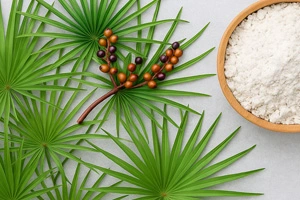
Rather than relying solely on synthetic medications such as alpha-blockers or 5α-reductase inhibitors, consumers and supplement brands are increasingly turning to saw palmetto extract (Serenoa repens) and pygeum africanum extract. Both botanical ingredients have been extensively studied and are now essential components in many BPH supplement formulations and men’s health products.
When comparing these two extracts—saw palmetto vs pygeum—the question for formulators, manufacturers, and consumers alike is clear: Which provides better results for prostate health and urinary function?
The following sections explore the biological mechanisms, clinical evidence, and practical formulation insights that define these two powerful natural remedies.
Understanding BPH and the Role of Saw Palmetto and Pygeum Extracts
BPH (Benign Prostatic Hyperplasia) is one of the most common health concerns among aging men, directly affecting urinary comfort and prostate health. The condition occurs when the prostate gland enlarges due to hormonal imbalance—especially elevated Dihydrotestosterone (DHT) levels converted from testosterone by the enzyme 5-alpha-reductase (5αR).
This buildup of DHT triggers excessive cell growth within the prostate, gradually compressing the urethra and leading to symptoms such as weak urine flow, increased nighttime urination, and incomplete bladder emptying.
Both saw palmetto extract (Serenoa repens) and pygeum africanum extract have demonstrated significant potential to naturally support prostate health by targeting this DHT-driven process. These botanical ingredients are now widely used by nutraceutical manufacturers, BPH supplement brands, and OEM formulation developers to provide safe, evidence-based alternatives to synthetic medications.
Their growing popularity reflects a global trend toward natural DHT blockers, clean-label formulations, and long-term wellness products that combine efficacy with excellent tolerability.
Mechanism of Action: How Each Extract Supports Prostate Health
1. Saw Palmetto Extract (Serenoa repens)
Saw palmetto is derived from the berries of a small palm native to the southeastern United States. Its therapeutic value lies in its lipid-rich composition — particularly free fatty acids (lauric, oleic, myristic, palmitic) and phytosterols (β-sitosterol, campesterol, stigmasterol).
These active compounds:
•Inhibit 5α-reductase activity, thereby reducing DHT levels;
•Block DHT binding to androgen receptors in prostate tissue;
•Reduce local inflammation in the prostate and urinary tract;
•Improve urinary flow by relaxing smooth muscle tissue.
Clinical studies show that standardized saw palmetto extract (320 mg/day, containing ≥80% fatty acids) can significantly improve urinary symptoms and flow rate, comparable to mild pharmaceutical therapies, but without hormonal side effects.
Moreover, saw palmetto’s anti-inflammatory and antioxidant actions also protect prostate cells from oxidative stress, which contributes to long-term tissue health.
Our Saw Palmetto Extract Powder Basic Information
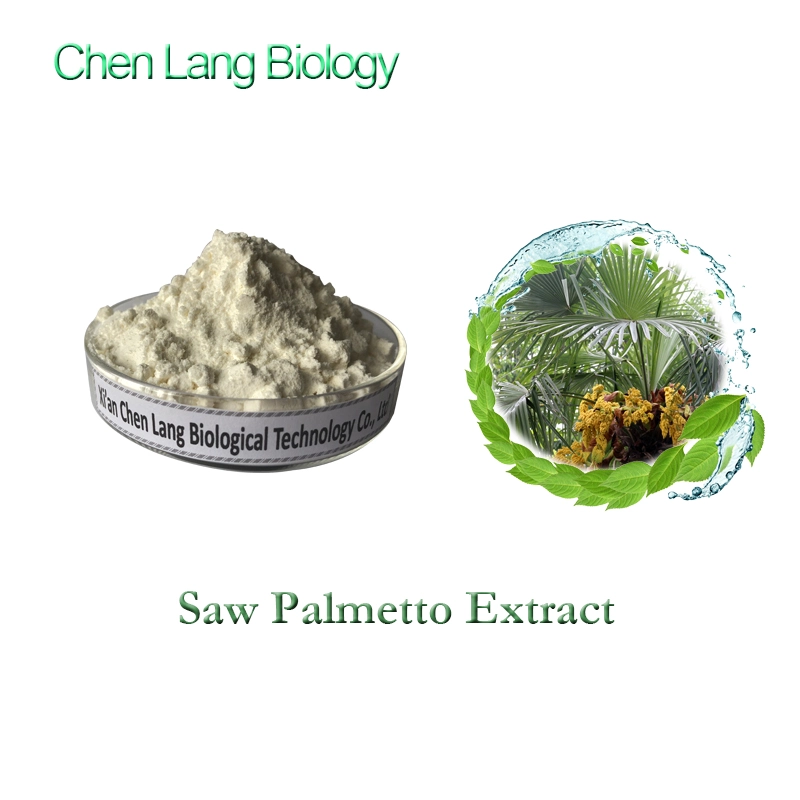
|
Name |
Saw Palmetto Extract |
|
Appearance |
White powder |
|
Active Ingredients |
Fatty acids25%-45% |
|
Test Method |
GC |
|
Package |
25Kg/Paper drum |
|
Shelf Life |
24 Months |
|
Storage |
Keep in cool and dry place |
2. Pygeum africanum Extract (African Plum Bark)
Pygeum comes from the bark of an evergreen tree native to Central and Southern Africa. It contains phytosterols (β-sitosterol, campesterol), ferulic esters, and triterpenes, which act through complementary mechanisms:
Anti-inflammatory action: reduces prostaglandin synthesis and local swelling;
Improves bladder elasticity and tone, reducing nighttime urination (nocturia);
Enhances prostatic secretions, improving comfort and urinary flow;
Inhibits fibroblast growth, helping to prevent further prostate tissue proliferation.
Unlike saw palmetto, Pygeum’s primary focus is not just hormone regulation but also restoring urodynamic function — meaning it improves how the bladder and urethra work together.
This makes pygeum especially effective in reducing urinary urgency, frequency, and discomfort, symptoms often associated with moderate to advanced BPH.
Our Pygeum africanum Extract Basic Information
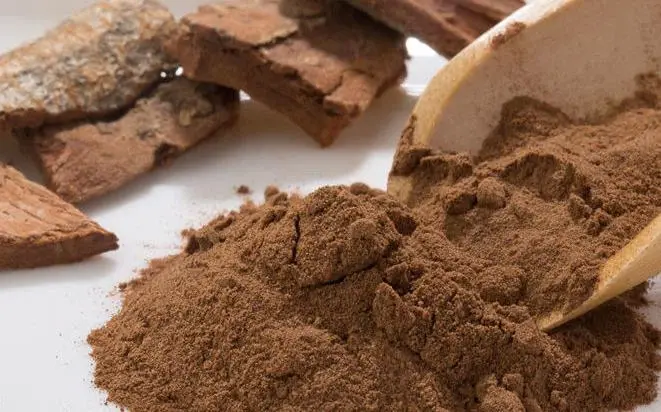
|
Name |
Pygeum africanum Extract |
|
Appearance |
Brownish powder |
|
Specifications |
4:1, 12:1 |
|
Test Method |
TLC |
|
Package |
25Kg/Paper drum |
|
Shelf Life |
24 Months |
|
Storage |
Keep in cool and dry place |
At Xi’an Chen Lang Bio Tech Co., Ltd., both extracts are produced under strict quality control using advanced purification techniques, ensuring high active content, purity, and stability.
The company offers flexible packaging, bulk supply, and OEM support for nutraceutical manufacturers, health supplement brands, and raw-material distributors worldwide.Contact us email: admin@chenlangbio.com for bulk saw palmetto extract online order.
Clinical Evidence: Comparing Saw Palmetto and Pygeum
|
Study Focus |
Saw Palmetto Extract |
Pygeum africanum Extract |
|
Main Active Components |
Fatty acids(25–80%) and phytosterols |
Phytosterols, ferulic esters, triterpenes |
|
Mechanism |
5α-reductase inhibition, anti-inflammatory, androgen receptor modulation |
Anti-inflammatory, antioxidant, fibroblast inhibition |
|
Effect on DHT |
↓ DHT by 30–40% (local action) |
Mild DHT reduction; primarily improves bladder dynamics |
|
Clinical Dose |
320 mg/day standardized extract |
100–200 mg/day standardized extract |
|
Primary Benefits |
Reduces prostate volume, improves urinary flow, decreases frequency |
Improves bladder emptying, reduces nocturia, relieves pressure |
|
Onset of Effects |
4–8 weeks |
6–12 weeks |
|
Side Effects |
Very mild (digestive upset, rare headache) |
Very mild (occasional GI discomfort) |
|
Ideal User Profile |
Men seeking natural hormonal balance and prostate support |
Men experiencing urinary discomfort and night-time urgency |
|
Scientific Support |
Strong evidence (30+ clinical trials) |
Moderate to strong evidence (15+ studies) |
Efficacy and Symptom Improvement
Clinical data suggest that both extracts are effective, but their strengths differ:
Saw palmetto is stronger in hormonal regulation (reducing DHT and prostate enlargement).
Pygeum excels in symptom relief (reducing frequency, urgency, and nocturia).
A 2016 review in Phytotherapy Research concluded that saw palmetto provides measurable improvement in urinary flow and symptom scores in mild to moderate BPH. Meanwhile, a meta-analysis published in BJU International found that Pygeum reduced nocturia by 19% and improved residual urine volume by 24%, with minimal side effects.
For best results, many practitioners recommend combining both extracts — saw palmetto for hormonal balance and pygeum for urinary comfort — in integrated prostate health formulations.
Safety Profile and Long-Term Use
Both extracts are considered safe for long-term use and are widely available as dietary supplements.
Saw palmetto extract: Generally well tolerated; rare reports of mild gastrointestinal discomfort or headache. It does not affect testosterone levels or interfere with sexual function.
Pygeum extract: Safe even with prolonged use; mild digestive discomfort can occur in sensitive individuals but typically subsides.
Neither ingredient has been linked to significant drug interactions or hormonal disruptions. This excellent tolerability profile makes both extracts attractive for nutraceutical and functional food manufacturers targeting the men’s health category.
How to Choose Saw Palmetto and Pygeum
When selecting ingredients for prostate health products, the choice depends on your target outcome and product positioning:
|
Goal |
Recommended Extract |
Why |
|
Reduce prostate size and DHT levels |
Saw Palmetto Extract |
Strong 5α-reductase inhibition and androgen modulation |
|
Relieve urinary symptoms (urgency, nocturia) |
Pygeum Extract |
Improves bladder elasticity and urinary flow |
|
Comprehensive prostate support |
Combination of both |
Addresses both hormonal and functional causes |
|
Clean-label, natural men’s health product |
Either (based on formula focus) |
Safe, plant-based, and widely accepted |
|
OEM supplement formulation |
Saw Palmetto + Pygeum blend |
Proven synergistic efficacy and strong market appeal |
Market Outlook: Rising Demand for Natural Prostate Solutions
Global interest in men’s health supplements continues to grow, particularly for plant-based and clinically supported ingredients.
Consumers increasingly prefer natural DHT blockers over pharmaceutical drugs due to their safety and lifestyle compatibility.
Market analysts project a CAGR above 6% for the prostate health supplement sector through 2030, driven by aging demographics and preventive health awareness.
Among all natural extracts, saw palmetto remains the category leader, while pygeum is gaining recognition as an effective complementary botanical.
For manufacturers and private-label brands, integrating these extracts provides:
High perceived value and consumer trust;
Proven clinical support for label claims;
Scalable, cost-effective raw material sourcing;
Versatility across capsules, softgels, and blends.
Conclusion
Both saw palmetto extract and pygeum africanum extract offer credible, natural solutions for managing BPH and overall prostate health.
Saw palmetto excels in hormonal modulation by reducing DHT formation, making it ideal for long-term prevention and maintenance. Pygeum, on the other hand, focuses on functional symptom relief, improving urinary comfort and quality of life.
For supplement formulators, the most effective approach often combines both extracts — uniting saw palmetto’s DHT-regulating power with pygeum’s anti-inflammatory and urodynamic benefits.
Backed by clinical research and consumer trust, these botanicals continue to define the future of natural prostate care formulations, helping brands and manufacturers deliver products that are both scientifically grounded and commercially successful.
XI AN CHEN LANG BIO TECH is plant extract powder manufacturer in China, we supply high quality bulk saw palmetto extract and pygeum africanum extract powder in global market with full documents. Please contact us email: admin@chenlangbio.com if you want more information about that.
References
Wilt TJ et al., JAMA, 1998;280(18):1604–1609.
Scaglione F et al., Minerva Urol Nefrol, 2012;64(3):231–242.
Andriole GL et al., J Urol, 2004;172(4 Pt 1):1399–1403.
Caruso D et al., Front Pharmacol, 2020;11:527484.
Vahlensieck W et al., Urologia Internationalis, 2009;83(4):383–390.
Chatelanat F, Therapie, 2017;72(2):191–200.
Send Inquiry
Related Industry Knowledge
- Vitamin E Powder: FAQ for Wholesale Buyers
- The Science Behind Bulk Dimethylmethoxy Chromanol
- Pure Fisetin: A Natural Senolytic Solution
- How Do You Use Camellia Oleifera Seed Extract Powder
- How Long Does It Take for Monobenzone to Work
- Can Humans Take Praziquantel for Tapeworm
- Can I Dissolve Praziquantel in Water
- What is 4-Hexylresorcinol in Food
- Does Honokiol Help With Sleep
- Is it Safe to use Hyaluronic Acid Powder Cosmetic Grade Every Day


